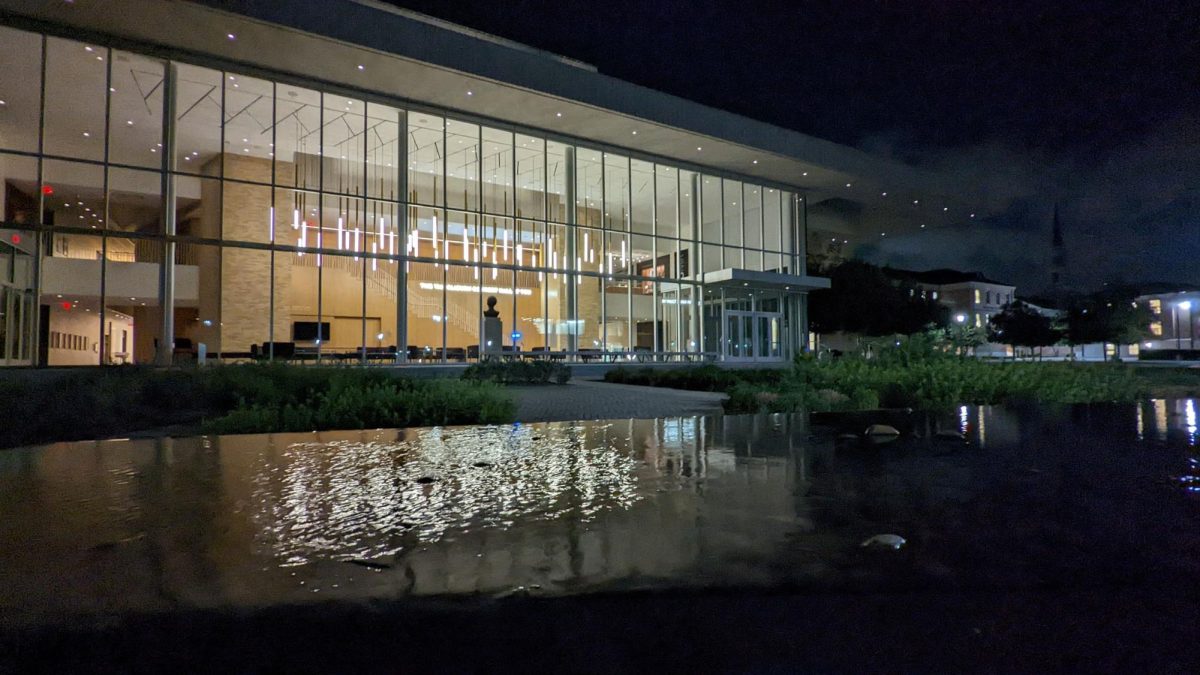The Fort Worth City Council voted 8-1 on Tuesday to raise water and sewage rates beginning Jan. 1.
The hikes were primarily due to pipeline and infrastructure costs, as well as costs to treat wastewater and meet new environmental regulations, said Mary Gugliuzza, public education coordinator for the water department.
“Raw water is the big one, and we’re expecting it to continue into the next few years,” Gugliuzza said.
Water rates in Fort Worth are structured in tiers. Customers who use more water pay higher rates. Beginning in January, the usage amounts for each tier will change, even though the rates within the tiers will not.
Usage amounts are measured in CCF, or 100 cubic feet of water. The lowest tier currently includes households using 8 CCF or less. Next year, that tier will be 200 cubic feet lower, only covering customers who use 6 CCF or less.
For example, customers consuming around 7 CCF are currently paying $2.07 per CCF. Next year, they’ll pay $2.96 per CCF.
According to a Fort Worth water department report, average residential users can expect their water bill to increase by $5.42 per month. Efficient consumers may only see a $2.58 increase per month, while large consumers will see a $16.24 increase per month.
The annual increase for average users is 9.98 percent, according to the report.
Council concerns
Councilman Cary Moon, newly elected in May, said he took a deep look at the expenses, concerned the rate increases were unnecessary.
“In my professional experience, I’ve seen that the first option is always to charge the customer more,” Moon said.
But on Tuesday night, after lengthy research and careful consideration, Moon voted in favor of the increase.
“I want to thank the staff for putting up with me and my inquiries, and wanted council to know I did complete as much due diligence on this as possible and it’s apparent,” Moon said.
He said that after looking through the expenses, he realized a third of the costs came from the regional water district itself.
Moon suggested keeping residential bills low by changing the amortization period of the debt the department takes on from 20 years to 30 years and offering a discount to customers who forgo a paper bill.
“We actually still have a cost associated with generating a PDF of the bill,” Gugliuzza said.
The water department was accepting comments over the proposed rate increases up until last week, but they only received feedback from one person who expressed concern over the new rates, Gugliuzza said.
Jungus Jordan was the only council member to vote against the rate increase, but he could not be reached to comment on why. He did, however, vote in favor of a similar proposal to raise wholesale water rates.
“While it never is easy to raise them, in this case for our growth and in order to continue to deliver the excellent water we have, I too will support this, and I’m not one to support a lot of rate increases,” Mayor Betsy Price said at Tuesday’s meeting.
The new water rates were voted on as part of the 2016 budget. The complete budget will be voted on and adopted at the city council meeting on Sept. 15.

Dawn Alexandrea Berry gave the keynote address about the Korean War's legacy on the search for missing service members in the annual Lance Cpl. Benjamin W. Schmidt Symposium.
Published Apr 21, 2024
Published Apr 21, 2024
Published Apr 21, 2024
Published Apr 20, 2024
Published Apr 19, 2024
City Council approves water rate hike
Published Sep 3, 2015
QUICK LINKS
ABOUT TCU
FOLLOW US
TCU 360 is the official, student-produced product of the Department of Journalism in the Bob Schieffer College of Communication at Texas Christian University.
Our mission is to develop aspiring journalists who use accurate and ethical reporting to inform and serve people invested in TCU.
All Horned Frogs are welcome.
Copyright ©2024 TCU Student Media. All rights reserved.
Our mission is to develop aspiring journalists who use accurate and ethical reporting to inform and serve people invested in TCU.
All Horned Frogs are welcome.
Copyright ©2024 TCU Student Media. All rights reserved.




